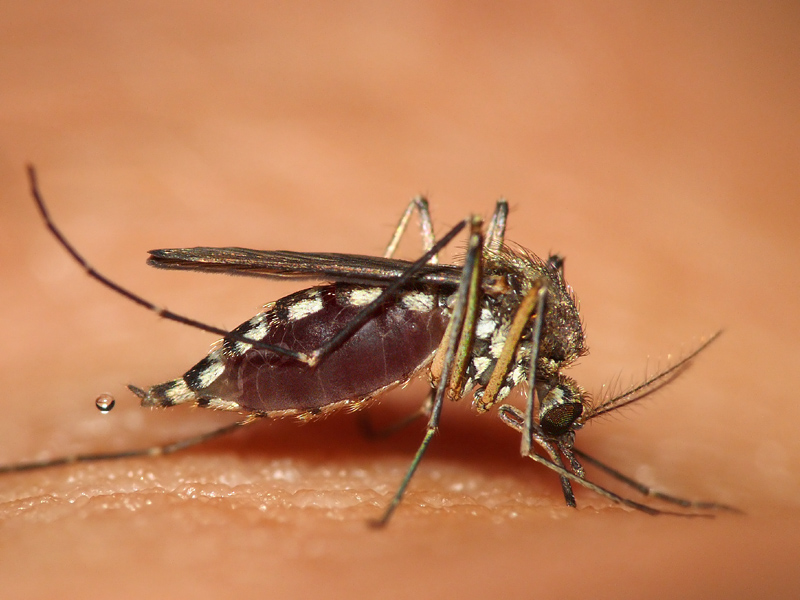Scientists have found a way to use mosquitoes as mobile vaccinating machines!
Mosquitoes are ranked as the world's most dangerous animal because the diseases they transmit, including malaria, dengue and yellow fever, kill several million people per year. But now scientists having turned the tables and are working on ways to reprogramme mosquitoes to convert them from agents of illness into low cost flying vaccines!
 The work is based on the premise that when mosquitoes take a blood meal they first inject saliva, containing anticoagulants and immune-evading agents, around the blood vessel puncture site. This is what provokes the itchy inflammatory aftermath but is also responsible for transmitting infectious agents, which the mosquito regurgitates into the wound when it feeds.
The work is based on the premise that when mosquitoes take a blood meal they first inject saliva, containing anticoagulants and immune-evading agents, around the blood vessel puncture site. This is what provokes the itchy inflammatory aftermath but is also responsible for transmitting infectious agents, which the mosquito regurgitates into the wound when it feeds.
But Shigeto Yoshida, from Jichi Medical University in Japan, reasoned that it ought to be possible to exploit this unpleasant aspect of the insect's behaviour in a beneficial way. They set about genetically modifying Anopheles mosquitoes to make them produce in their saliva a protein called SP15, which is critical to the spread of another major disease-causing parasite, called leishmania.
Mice bitten repeatedly by these modified mosquitoes, the team found, developed antibodies to SP15, which other researchers have shown can protect against leishmania transmission.
"Following bites, protective immune responses are induced, just like conventional vaccination but with no pain and no cost," says Yoshida. "What's more, continuous exposure to bites will maintain high levels of protective immunity, through natural boosting, for a lifetime."
Now the team are testing whether mosquito-vaccinated mice really can be protected from leishmania infection; the same SP15 protein has been successfully tested as an experimental vaccine previously so the odds are that it should work.
But whether this flying vaccinator technology will take off in general is another matter. Some may feel slightly stung, however, by the idea of a natural and uncontrolled vaccination system delivering unmetred drug dosages and boosters indiscriminately, a sentiment prempted by the scientists themselves in their paper, published in Insect Molecular Biology.
"The concept of a "flying vaccinator" transgenic mosquito is not likely to be a practicable method of disease control, because "flying vaccinator" is an unacceptable way to deliver vaccine without issues of dosage and informed consent against current vaccine programs. These difficulties are more complicated by the issues of public acceptance to release of transgenic mosquitoes."










Comments
Add a comment